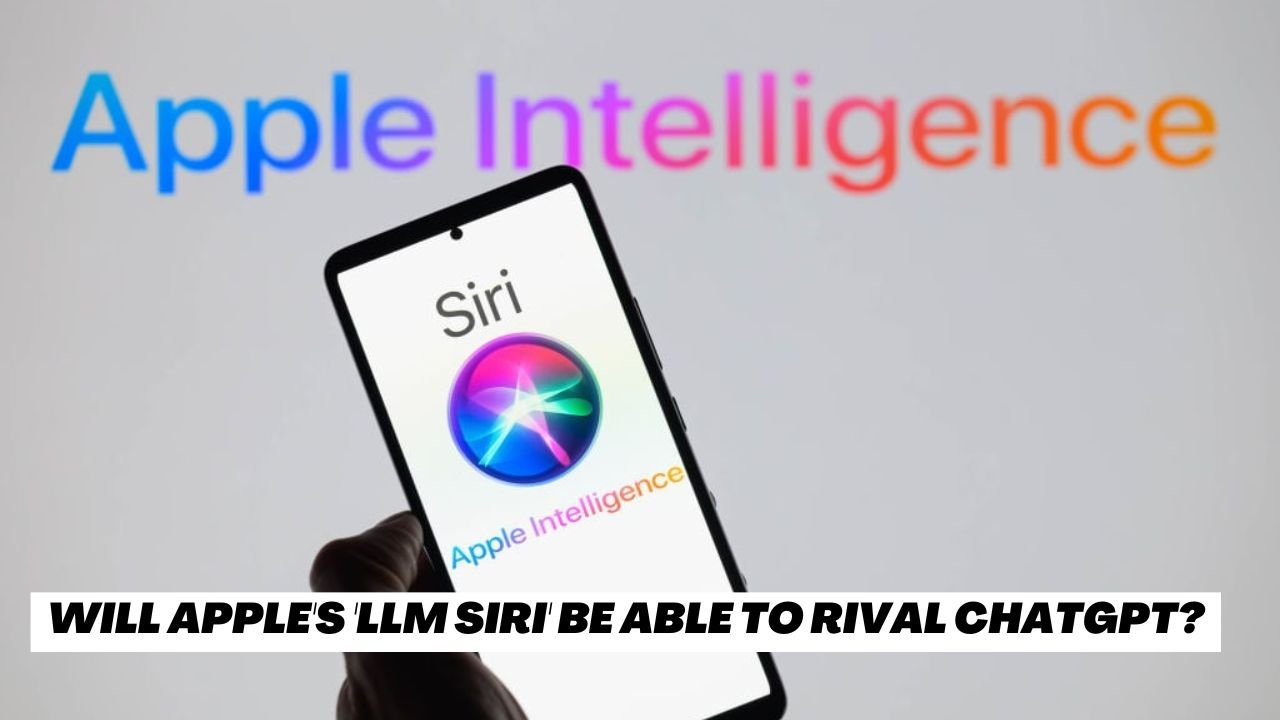Apple's LLM Siri: Challenges And Opportunities

Table of Contents
Technological Challenges Facing Apple's LLM Siri
Integrating LLMs into Siri is not without its hurdles. Apple faces several key technological challenges:
Data Limitations
Apple's commitment to user privacy, while commendable, poses a challenge. Unlike competitors who leverage massive datasets for LLM training, Apple's privacy-focused approach results in a smaller dataset. This limitation directly impacts Siri's performance.
- Smaller datasets lead to less accurate and less nuanced responses: Limited data means Siri might struggle with complex queries or nuanced requests, resulting in less satisfactory interactions.
- Difficulty in achieving the same level of contextual understanding as competitors: Understanding context is crucial for natural conversation. A smaller dataset hinders Siri's ability to grasp the subtleties of user intent and provide truly helpful responses.
- Potential for slower progress in developing advanced LLM features: Developing sophisticated features like advanced reasoning or creative text generation requires extensive training data. Apple's data constraints may slow down the development and rollout of these capabilities.
Integration with Existing Apple Ecosystem
Seamless integration across Apple's diverse ecosystem (iPhones, iPads, Macs, Apple Watches, HomePods) is paramount. However, this presents considerable technological complexity.
- Ensuring consistent performance across diverse hardware and software versions: Optimizing LLM performance across different devices and operating systems is a significant undertaking. Maintaining consistency is crucial for a positive user experience.
- Optimizing LLM processing for low-power devices like Apple Watch: Running computationally intensive LLMs on resource-constrained devices requires innovative optimization techniques to avoid excessive battery drain.
- Maintaining user privacy while enabling effective data usage for LLM improvement: Balancing privacy with the need for data to improve Siri's performance is a delicate act. Apple must find innovative solutions to allow for model improvement without compromising user data security.
Overcoming the "Valley of Despair"
The transition from a basic voice assistant to a truly sophisticated conversational AI using LLMs is challenging. Apple must manage user expectations effectively during this transition.
- Addressing initial performance hiccups and user frustrations: Introducing new features inevitably involves bugs and performance issues. Apple needs to be proactive in addressing these and communicating transparently with users.
- Clearly communicating the ongoing development and improvement of Siri's capabilities: Setting realistic expectations and regularly updating users on progress is crucial for maintaining trust and engagement.
- Focusing on specific areas of strength to showcase LLM advancements gradually: Instead of trying to do everything at once, Apple should prioritize specific areas where LLM integration can deliver immediate value and showcase its progress incrementally.
Opportunities for Apple's LLM Siri
Despite the challenges, LLMs offer tremendous opportunities to enhance Siri and strengthen Apple's position in the market.
Enhanced Personalization
LLMs enable highly personalized experiences. By leveraging user data responsibly (while maintaining privacy), Siri can provide more relevant and tailored responses.
- Predictive assistance based on user routines and preferences: Siri can anticipate user needs and offer proactive assistance based on established patterns.
- Proactive suggestions and reminders customized to individual needs: Personalized reminders and suggestions improve task management and overall productivity.
- Personalized learning and skill development through interactive conversations: Siri could act as a personalized tutor or learning companion, tailoring its approach to individual learning styles and goals.
Expansion into New Applications
LLMs unlock new possibilities for Siri beyond basic queries. Siri can handle more complex tasks, significantly expanding its functionality.
- Advanced creative writing and content generation assistance: Siri could assist with writing emails, stories, poems, or other creative content.
- Improved language translation and interpretation capabilities: LLMs can enhance Siri's ability to translate languages and interpret different dialects with greater accuracy.
- Integration with productivity and professional tools: Siri could integrate with professional software to improve workflow and task management.
Strengthening Apple's Ecosystem
A more powerful Siri can become a central hub connecting various Apple services and devices.
- Streamlined control over smart home devices and other IoT integrations: Siri can provide a more intuitive and comprehensive control center for a connected home environment.
- Improved cross-device communication and data synchronization: Seamless communication and data sharing across Apple devices enhance user convenience and productivity.
- Enhancing the overall user experience within the Apple ecosystem: A powerful and intelligent Siri elevates the entire user experience, solidifying Apple's position in the tech landscape.
Conclusion
Apple's LLM Siri faces substantial technological challenges, particularly concerning data limitations and ecosystem integration. However, the potential benefits of LLMs are equally significant. By focusing on personalization, expanding into new applications, and strengthening its ecosystem integration, Apple can transform Siri into a leading voice assistant. Successfully navigating these challenges requires strategic planning, efficient data usage, effective communication with users, and a phased approach to showcasing LLM advancements. The future of Apple's LLM Siri depends on adeptly capitalizing on these opportunities while overcoming the hurdles ahead. Learn more about the evolution of Apple's LLM Siri and its potential impact on the future of technology.

Featured Posts
-
 Good Morning America Stars Face Job Cuts Amidst Backstage Drama
May 20, 2025
Good Morning America Stars Face Job Cuts Amidst Backstage Drama
May 20, 2025 -
 Tampoy Mia Eykairia Gia Agapi I Istoria Tis Marthas
May 20, 2025
Tampoy Mia Eykairia Gia Agapi I Istoria Tis Marthas
May 20, 2025 -
 Agatha Christie Une Exploration De Son Integrale
May 20, 2025
Agatha Christie Une Exploration De Son Integrale
May 20, 2025 -
 The Stark Math Of The Gop Tax Plan Deficit Impact Analysis
May 20, 2025
The Stark Math Of The Gop Tax Plan Deficit Impact Analysis
May 20, 2025 -
 Seeking Refuge From Trumpism The Growing Trend Of Americans Obtaining European Passports
May 20, 2025
Seeking Refuge From Trumpism The Growing Trend Of Americans Obtaining European Passports
May 20, 2025
Latest Posts
-
 Wayne Gretzky Fast Facts Key Moments And Milestones In His Career
May 20, 2025
Wayne Gretzky Fast Facts Key Moments And Milestones In His Career
May 20, 2025 -
 Wayne Gretzkys Fast Facts A Quick Look At The Great Ones Life
May 20, 2025
Wayne Gretzkys Fast Facts A Quick Look At The Great Ones Life
May 20, 2025 -
 Paulina Gretzky In Leopard Print A Sopranos Style Fashion Moment
May 20, 2025
Paulina Gretzky In Leopard Print A Sopranos Style Fashion Moment
May 20, 2025 -
 Wayne Gretzky Fast Facts And Career Highlights
May 20, 2025
Wayne Gretzky Fast Facts And Career Highlights
May 20, 2025 -
 The Impact Of Trump Tariffs And Statehood Comments On Wayne Gretzkys Legacy In Canada
May 20, 2025
The Impact Of Trump Tariffs And Statehood Comments On Wayne Gretzkys Legacy In Canada
May 20, 2025
